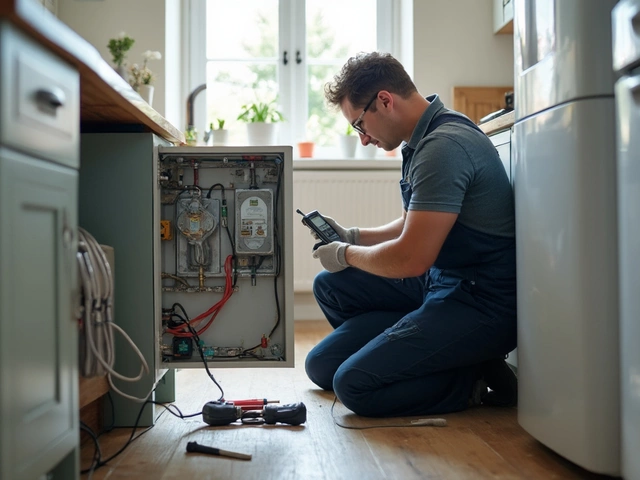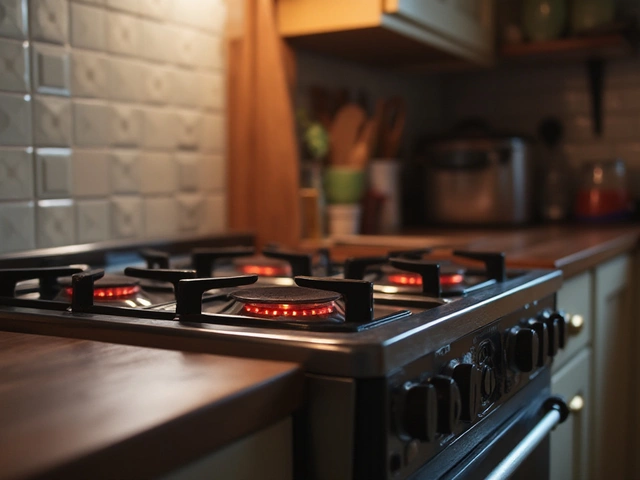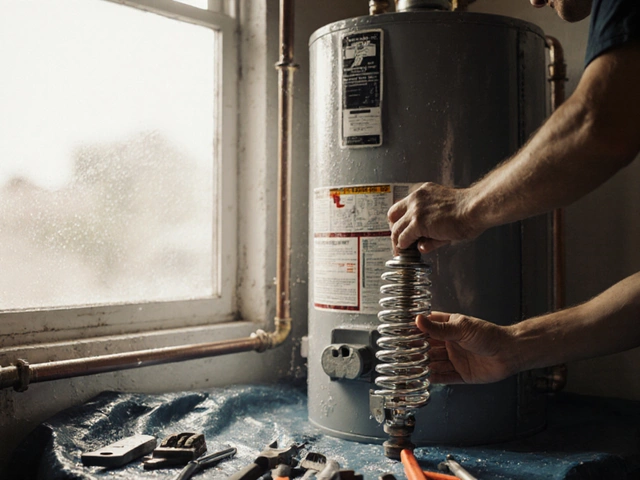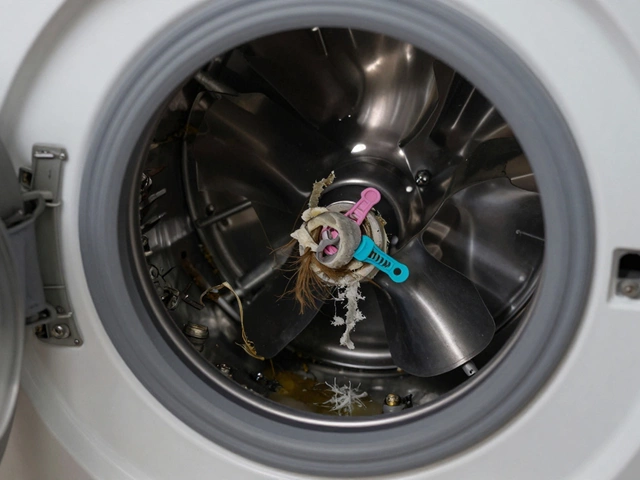Boiler Repair: Who Fixes Your Heat and How They Do It
May 23 2025Life expectancy of home appliances – what to expect
If you’re wondering whether your boiler will quit next month or if your oven still has years left, you’re not alone. Knowing how long an appliance should last helps you plan maintenance, avoid surprise breakdowns, and keep your home safe. Below is a quick guide to the typical life spans you can count on.
Typical lifespans of key appliances
Boilers – A well‑maintained gas boiler usually makes it 10‑15 years. Some units reach 20 years if they get an annual service and the water quality stays good. If you’re past 15, start budgeting for a replacement.
Water heaters – Electric or gas water tanks tend to last 8‑12 years. Sediment builds up faster in hard water areas, so a yearly flush can add a few extra years. When you notice lukewarm showers or strange noises, it’s time to check the tank.
Ovens and ranges – Most electric ovens survive 12‑15 years. The heating element is the part that wears out first; replacing it can add another decade. Keep the interior clean and watch for uneven heating – those are early warnings.
Extractor fans (kitchen & bathroom) – These fans often last 5‑10 years. Grease and moisture cause motor wear, so cleaning the filter every month and wiping the fan blades quarterly can push the life toward the upper end of that range.
Freezers and refrigerators – A fridge can keep going for 12‑20 years, while freezers often hit 15‑20. The compressor is the most common failure point; regular coil cleaning and keeping the temperature steady help it last longer.
How maintenance extends life expectancy
Regular servicing is the single biggest factor in stretching an appliance’s life. For boilers, an annual check by a certified engineer catches rust, leaks, and pressure issues before they turn into costly repairs. Skipping that service can cut a boiler’s life by several years.
Water heaters benefit from a simple drain‑and‑flush every 12 months. It removes sediment that eats away at the heating element and reduces the risk of corrosion. The task takes less than 15 minutes and can add 2‑3 years to the tank’s life.
Keep oven interiors free of spilled food and clean the heating element with a soft cloth. A burnt‑on residue will cause the element to overheat and fail sooner. If you notice the oven taking longer to preheat, give it a quick inspection.
Extractor fans need a filter change every 1‑3 months depending on cooking style. A blocked filter forces the motor to work harder, which can burn it out. A quick wipe of the fan housing every few weeks also prevents grease buildup.
For fridges and freezers, vacuum the coils at least twice a year and check the door seals for cracks. A tight seal keeps the compressor from running nonstop, which is a major wear factor.
When an appliance shows the usual warning signs – strange noises, reduced performance, or frequent trips of the breaker – treat it as a cue to call a professional. A quick diagnostic can tell you whether a simple repair will keep it going or if replacement is the smarter move.
At Bedford Gas Appliance Repair Services we help you decide what to do next. Whether it’s a boiler tune‑up, an oven element swap, or advice on when to replace a fan, our certified engineers are here to keep your home running safely and efficiently.
Knowing the typical life expectancy of your appliances lets you avoid nasty surprises and saves money in the long run. Schedule a maintenance check today and get peace of mind that your home’s vital systems are ready for whatever comes next.
 21 Feb
21 Feb
Life Expectancy of a Gas Hob: How Long Should It Last?
Gas hobs are a staple in many kitchens, known for their efficiency and quick heat control. But like all appliances, they don't last forever. Understanding how long your gas hob is likely to last can help you plan for repairs or replacements. This article breaks down the factors affecting the lifespan of gas hobs and provides tips on maintaining them for longevity.
Read More...



